- Home
- Helen Forrester
The Lemon Tree Page 15
The Lemon Tree Read online
Page 15
Chapter Eighteen
When Wallace Helena arrived at the soapery, she found Mr Bobsworth very busy in the Shipping and Forwarding Department. He was in his shirt sleeves, and in his hand he held a brush dripping with black paint. He was in the midst of carefully marking boxes of soap with identifying numbers and with the addresses to which they were to be delivered.
Embarrassed at being found in his shirt sleeves by a lady, he hastily put down his brush and wiped his hand on a cloth exuding a strong smell of solvent. He then groped behind him for his jacket, while apologizing to Wallace Helena for his disarray.
‘So sorry, Miss Harding. I’ve always supervised Shipping and Forwarding myself; it avoids errors and delays in delivery, you understand.’ He shepherded her gently into his little office. ‘The smell of paint must be overwhelming to you,’ he suggested, as he pulled out a chair and his assistant, Mr Le Fleur, sprang respectfully to his feet. He turned to Le Fleur, and ordered him to go and finish marking the crates. The young man went reluctantly; he had no desire to get drips of paint on himself, and old Bobsworth had a great streak of it across his chin.
As diplomatically as she could, Wallace Helena informed the accountant of the streak. This sent him flying to a mottled mirror hanging over a tiny office sink in the corner, where he rubbed it ineffectually with his handkerchief. ‘So sorry, Miss Harding,’ he breathed anxiously.
‘Don’t worry, Mr Bobsworth. I think it’s time I looked at the company’s books and inventory; I think I would first like to see what we owe and what is owed to us – and what orders and commitments we presently have.’
Poor Mr Bobsworth hastily stuffed his hanky back into his trouser pocket and felt around in his waistcoat for the key to his wooden book cupboard. He looked quite flustered, as he took out several account books and his ledger. ‘I’m sure you’ll find everything in order, Miss Harding. Mr Benson has, more or less, left the accounts to me while we are waiting for Probate, though his auditor has popped in from time to time to see that all is well. Would you like to sit at the table here?’
‘I’m sure everything will be just fine, Mr Bobsworth. No doubt Mr Benson has informed you that you may show the books to me?’
Though he assented, the remark sent him into another flutter; he hoped she would find his handwriting easily readable.
In dire need of a smoke, Wallace Helena rose from the table clutching the heavy books to her and announced that she would work in her uncle’s office.
Mr Bobsworth took the books from her and escorted her.
Mr Helliwell, her uncle’s private secretary, received her with the calm assurance of a man who had always enjoyed his master’s total confidence. He had studied Mr James Al-Khoury with the greatest attention and had understood his whims and foibles. As he often said to his wife, his lips were sealed. ‘Not even to you, dear heart, would I say anything about Mr Al-Khoury’s affairs.’
He was a pleasant, slightly pompous man around thirty years old. Wallace Helena thought him rather stupid, but Mr Benson had told her that, like Mr Bobsworth, he was as faithful as a bulldog. She did not hesitate to ask him if the tobacco had arrived and if he had any matches.
He nodded and pulled out the desk chair for her. She sat down mechanically in front of the books and absently tore open the packet of cigarette tobacco handed to her by the secretary. While he watched the quick deft movements of her fingers as she rolled a cigarette and licked the paper to seal it, she said to him, ‘Mr Helliwell, we use olive oil and other kinds of oil in our soap, don’t we?’
‘Yes, Miss Harding.’
‘Do you know if anyone has discovered an oil which will heal smallpox scars?’
Though the question was unexpected, Mr Helliwell answered immediately in the negative. ‘I believe I would know if there were such an oil. My wife’s eldest sister is badly scarred – we still get smallpox here, sometimes – and I’m sure that if such an oil existed, we would have tried to obtain it for her.’ He leaned forward, struck a sulphur match and lit Wallace Helena’s cigarette. She thankfully inhaled.
‘Poor woman,’ she said with feeling. She half closed her eyes, sickened by the sudden memory of her stepfather’s and her mother’s last hours. It appeared that Joe would be terribly marked for the rest of his life, and she sighed. Then she smiled faintly. He was still her irrepressible Joe, always optimistic that the next harvest would be better, the next winter milder or that the trapline would unexpectedly yield a wondrous collection of valuable furs.
As she took another puff at her cigarette, she said to Mr Helliwell, ‘Mother and my stepfather both died of smallpox.’ The heavy lids of her eyes were, for once, lifted towards him and he saw and understood some of the tragedy of her life reflected in them. ‘It took a third of our population,’ she went on a little heavily, ‘and the living are scarred to this day – that’s why I asked.’
Mr Helliwell blinked. ‘Dear Miss Harding,’ he exclaimed with genuine feeling, ‘how very sad for you. I wish I could suggest something for those who are pocked … you might ask a doctor, while you are here. Just in case something has recently been discovered – one never knows what science may divulge.’
‘Very true. I must ask.’ She looked up at him and said a little stiffly, as though she regretted the confidence, ‘I’m sure you must have work to do. I’ll ring if I need you.’
Dismissed, Mr Helliwell went back to his own small cubbyhole. Poor lady! She must also have gone through the same travail in Beirut that Mr James had; he knew about that because, once a year, on its anniversary, the old man had taken a holiday. He had explained to Mr Helliwell that on that particular day he wanted to be by himself to remember his friends killed in Beirut. As far as Mr Helliwell knew, he simply spent the day walking in the country. And, on top of that massacre, this poor woman had gone through a smallpox epidemic. He wondered how she had herself survived the latter unscathed, and decided that it was pure luck; God chose those He would take.
Now, she had lost her uncle, as well as her parents. He decided that she needed his complete support as much as he needed to keep his job.
Mr Helliwell’s perception of her was in contrast to that of nervous Mr Bobsworth, who became more and more defensive, as, for several days, she waded through his beautifully kept account books and pried into all his other responsibilities. He was a portly little man, with the colourless face of someone who has little time in the fresh air. There was a permanent deep frown line between his thin eyebrows; and his old-fashioned side whiskers stuck up over his winged collar in an equally permanent, untidy bristle. As he trotted importantly through the works, his pen parked comfortably behind one ear, Wallace was often beside him. When he sat in his tiny office, amid a sea of invoices and bills, receiving constant interruptions from boys or men in big aprons, who came for instructions, Wallace Helena was often there, too, perched on a stool to watch what went on. As the days went by, he began to regard her as a female busybody, an interloper in a life already made difficult enough by the death of his old friend, James Al-Khoury.
‘Mr Tasker and me – we’ve bin bere almost from the day Mr Al-Khoury started up. We all worked together to get the business going. You really don’t have to worry.’ He took off his gold-rimmed glasses and polished them on a spotless pocket handkerchief with quick impatient movements. ‘And Mr Benjamin Al-Khoury – he’s been keeping tabs on everything as much as he could, ever since Mr James died.’
‘I’m sure you have all done very well,’ she soothed. ‘My uncle’s passing must have been a personal loss to you, as well?’
Surprised, he glanced quickly at her. ‘Indeed, Miss Harding, it was,’ he replied a little huskily. ‘We were very good friends, if I may presume to say so.’
She was kind, he admitted to Mr Tasker. But she was a pest. ‘Forever at my shoulder, as if I can’t be trusted,’ he complained. He was further annoyed that Mr Tasker seemed to be entranced by her – and at his age he should know better. Why didn’t she get on with the sale of th
e place, so at least they would all know the worst, he asked Mr Tasker.
‘She’s not got no Probate yet,’ responded Mr Tasker. ‘She can’t do nothing till she gets that.’
Chapter Nineteen
Though, as a refugee, Wallace Helena had passed through Liverpool on her way to an immigrant ship to take her to the United States, she had not mixed with its inhabitants. Now, in the Lady Lavender soapery, she had come face to face with a society very different from anything else she had previously encountered. Unlike Chicago, the city had a long history and well-established customs. Her new employees were touchy about any suggestion of change. Dealing with them was stretching her quick intelligence to the utmost.
While she was going through the books, Wallace Helena sat late in her uncle’s office long after everyone else, except the nightwatchman, had gone home. She felt she needed uninterrupted quietness while she considered the ramifications of what she was looking at. Twice, on following mornings, she had ordered a spot check of a particular stock, which caused a lot of grumbling amongst employees in the particular department; they could not think why she bothered, since she was not likely to remain at the soapery; anyway, Mr Benjamin always did stocktaking.
Undeterred, she confirmed the accuracy of the records, and learned the exact duties of each employee.
She thought irritably that she could have acquired an overall view of the business much more quickly if Benjamin Al-Khoury had seen fit to be at the Lady Lavender when she arrived. As assistant manager, he could have told her much that she had had to deduce herself. On further consideration, she concluded that, as she did not know anything about him, a personal check of the books was not a bad idea. Mr Bobsworth had been quite helpful.
Like Mr Tasker and everybody else, Mr Bobsworth seemed to have all kinds of duties.
‘With Mr James Al-Khoury no longer with us and Mr Benjamin on a special visit to Manchester, I’m hard-pressed,’ he told her, hoping she would leave him alone to get on with his work.
Though her respect for the busy accountant grew daily, Wallace Helena had no intention of going away until she was certain that the two key employees in the business were absolutely trustworthy. Young Mr Benjamin was apparently assistant manager, but she felt that Bobsworth and Tasker were the two who set the standard for the other employees.
‘Some of our customers seem to have very long credit,’ she remarked one morning; she could almost hear her father advising to collect from debtors as fast as possible and pay one’s own bills only at the last possible moment – it gave a firm a better flow of money for temporary use elsewhere. She picked up three files from the desk. ‘These firms seem to be particularly favoured.’
Mr Bobsworth answered her patiently, though his head ached abominably. ‘They’re our biggest and best customers in the Manchester-Warrington area, Miss Harding. We can’t do less for them than our competitors would. We’re having a real fight with a Mr Lever, who is marketing a soap he calls Sunlight – a washing soap.’
This was the first time that Wallace Helena heard the name of this formidable man, who was in the process of revolutionizing the soap industry. It was his aggressive selling practices which had sent Benjamin Al-Khoury on a special visit to the firms with whom Lady Lavender dealt in Manchester, in the hope of persuading them that his company’s soap was far superior to anything Mr Lever could produce.
Wallace Helena had already learned from Mr Tasker that the soap industry was very competitive, and she now said, ‘Somebody mentioned that we advertise our soap and that, unlike many soap companies, we mention the name Lady Lavender, so that housewives ask for it by name.’
Mr Bobsworth’s side whiskers seemed to bristle more than usual, as he responded to the mention of advertising. He did not believe that newspaper advertising could improve sales; he thought it was a waste of money. Women bought soap, and how many working-class women could read? he was liable to ask.
He answered Wallace Helena primly, ‘Lines of credit were always negotiated by Mr James – Mr Benjamin does it at present. As for advertising, that is something Mr Benjamin introduced. You’ll have to ask him about it.’
Wallace Helena nodded. ‘I have not, of course, met Mr Benjamin,’ she said, and paused. Then she added slyly, to see what Mr Bobsworth’s reaction would be, ‘He must be a relation?’
Mr Bobsworth flushed. He slowly put down on her desk the purchase ledger which he had been holding. He was tired and wished Wallace Helena would invite him to be seated. Coming from a rough, frontier society, Wallace Helena had wrongly assumed that if he wanted to sit down he would do so.
His reply was careful. ‘Well, Mr James brought him into the business when he was about fifteen – and he knows the trade very well. He keeps an eye on Mr Turner in the laboratory, and he’s in charge of all sales.’ He stopped, and ran his finger round the inside of his stiff, winged collar as if it were too tight. ‘As to his being a relation, you would have to ask him.’ He hastened on to explain, in the hope of diverting her attention, that the firm distributed a lot of unperfumed toilet and washing soap through middlemen, and washing soap directly to cotton mills. ‘We’ve also got three representatives, working on commission. They travel all the time in their own districts, to sell our best line, Lady Lavender scented toilet soaps, to chemists’ shops and hairdressers, even a little to haberdashers; likewise, our line of Lady Lavender perfume – Mr Benjamin wants to extend our scent sales – scent is quite a profitable sideline in some places.’
The rough gold rings on Wallace Helena’s fingers caught the sunlight, as she slowly drew on a cigarello which Alfie had brought her as a possible alternative to cigarettes. Mr Bobsworth carefully kept his eyes averted; his head enveloped in smoke, he was afraid that his expression might betray his disapproval of a female smoker, particularly in a works full of oils and fats where No Smoking signs were prominently displayed.
Wallace Helena let the subject of Mr Benjamin rest, and said, ‘Mr Turner mentioned, when I spoke to him in his laboratory, that a residue of soap manufacture is glycerine. He said he is experimenting with a view to producing a line of emollients for ladies’ skins? Another idea was a cream to clean delicate skins instead of soap?’
Mr Bobsworth drooped; it looked as if this interview would go on into the evening. He pulled out a chair and defiantly sat on it; he had to sit down.
Wallace Helena made no comment. If he wanted to sit, he was welcome. She had come to the conclusion during the last few days that Englishmen must enjoy standing, since none of them sat in her presence.
‘Is glycerine really good for skins?’ she asked.
‘I believe it can be, Miss Harding. Mr James Al-Khoury was beginning to feel that there is a market for modestly priced products to enhance women’s skins. City life seems to ruin complexions.’ He paused, to clear his throat, and then went on. ‘The aristocracy has always used beauty aids, but he had in mind the lower classes, that he would pack creams in small tins to cost a few pence. I warned him – and I have since warned Mr Benjamin – that we have a lot of Nonconformists in Lancashire who would decry the use of emollients as vanity – some of them are against baths for the same reason. The market may not exist here, in the North.’
Wallace Helena remembered the ladies of Beirut and their proclivity for using scented unguents and she grinned. She saw in her mind Leila rubbing a mixture of flour and lard into her reddened hands, in a prairie land where everybody’s hands were work-worn. Vanity? How extraordinary.
She was suddenly very tired herself. She had had to keep up a firm façade before the men in the works; they seemed to consider that they were indulging her in permitting her to inspect her own property – her own except for the technicality of Probate.
‘Damn them,’ she muttered, as she rose slowly from her chair and began to walk stiffly up and down the dark, narrow room, to loosen her muscles.
‘You said something, Miss Harding?’
‘No.’ She blew out a cloud of smoke, and then said, ‘I
believe you mentioned that Mr Benjamin will be back tomorrow morning. I’d like to see him at two o’clock.’
‘I’ll ask Mr Helliwell to put a note on Mr Benjamin’s desk to that effect, Miss Harding.’ Let Helliwell do something for his living, he thought crossly.
Wallace Helena stretched herself, and then she leaned over the desk to butt out her cigarello in an ashtray. ‘Mrs Hughes will be expecting me for supper.’
Mr Bobsworth rose, his lips even tighter. Stretching herself in front of a man! Really, the woman had no manners. He said politely, ‘I’ll escort you home, Ma’am.’
‘No need,’ she responded lightly, as she pinned on her hat. ‘I can walk up the hill by myself.’ She took up her shawl and wrapped it round her shoulders.
‘It’s not safe, Miss Harding.’
‘I am used to lonely country, Mr Bobsworth. There are no cougars or bears on Hill Street!’
Mr Bobsworth argued politely that there were other, unspecified dangers. She countered that she had kept him so late that she now wanted him to go straight home.
The man was tired to the bone, so he suggested that Alfie might still be cleaning out the stables. ‘He usually does this job after hours, to earn a bit more. He’s very reliable. He’d take care of you.’
Resigned to the inevitable, Wallace Helena agreed to Alfie, if he could be found. She sat down again in her chair, while Mr Bobsworth went to collect his top hat and cane and then find the youngster.
Wallace Helena was interested in the patient mulatto, who bought tobacco and cigarellos for her from sailors’ shops in the Goree Piazzas. If she had had a child, she considered, he would probably look very like Alfie – though not so crushed.
A very bewildered Alfie, cap in hand and smelling distinctly of horse manure, knocked at the office door.
Wallace Helena rose and picked up her reticule. ‘Come in, Alfie,’ she said gently.

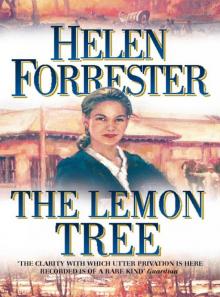 The Lemon Tree
The Lemon Tree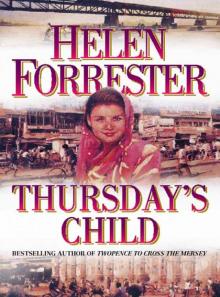 Thursday's Child
Thursday's Child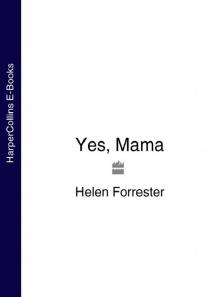 Yes, Mama
Yes, Mama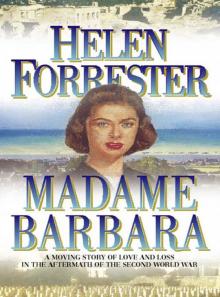 Madame Barbara
Madame Barbara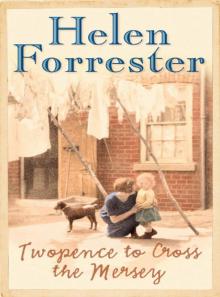 Twopence to Cross the Mersey
Twopence to Cross the Mersey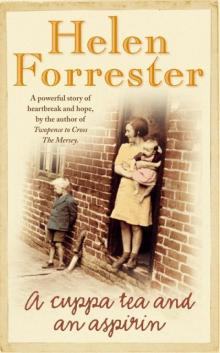 A Cuppa Tea and an Aspirin
A Cuppa Tea and an Aspirin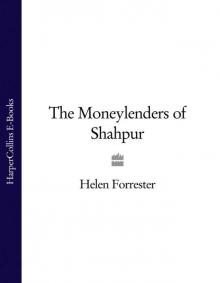 The Moneylenders of Shahpur
The Moneylenders of Shahpur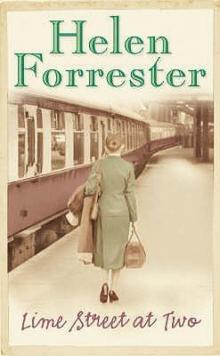 Lime Street at Two
Lime Street at Two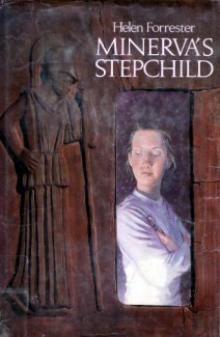 Minerva's Stepchild
Minerva's Stepchild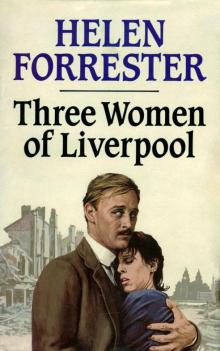 Three Women of Liverpool
Three Women of Liverpool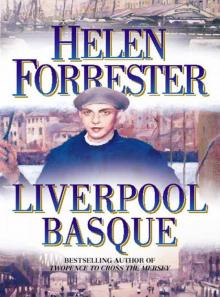 The Liverpool Basque
The Liverpool Basque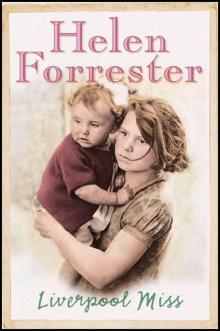 Liverpool Miss
Liverpool Miss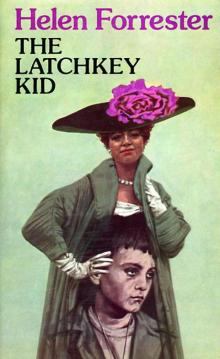 The Latchkey Kid
The Latchkey Kid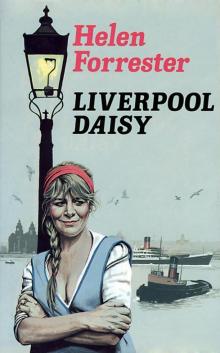 Liverpool Daisy
Liverpool Daisy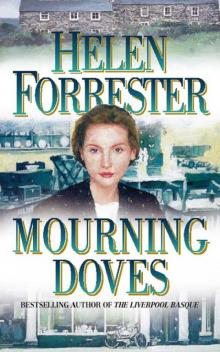 Mourning Doves
Mourning Doves